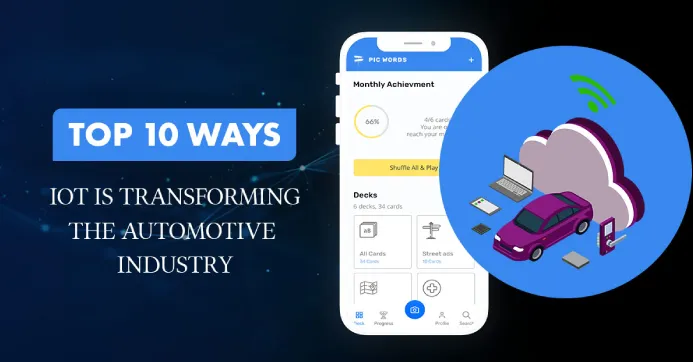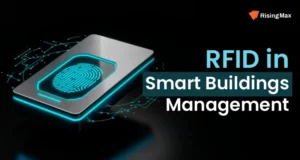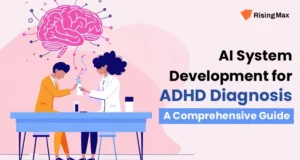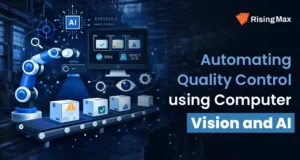With global sales of automobiles expected to reach 70 million units in the current year, the industry will hit another wondrous mark. Besides, conventional perceptions of the automotive industry are changing gradually.

As per the independent market research, “Automotive IoT Market by Platform-Global Forecast to 2025″ by GlobeNewswire predicts the automotive IoT market will grow at a CAGR of 16.4% from 2019 to 2025 and reach $541.73 billion by 2025.
The introduction of the Internet Of Things Services in the automotive industry dates back to when the Internet came. A computer diagnostics system has been embedded in cars since 1994, and a USB protocol & a Bluetooth communication channel have been added to cars. Surprisingly, there are numerous ways in which the automotive industry can tap IoT’s potential.
Here are a few snippets that tell how IoT is influencing the automotive industry:
- The estimated amount of money invested in automotive IoT will reach $740 billion by 2025;
- All new car models will have IoT connectivity by 2025;
- The Global Connected Cars market will be valued at $45.3 billion from 2017 to 2024.
Applications Of Internet Of Things In The Automotive Industry
Numerous sensors, devices, and services connect and work via the Internet, and every second car is equipped with them. It creates a comm network of IoT for automotive development. Let us now see how IoT technology for automobiles can bring a transformation in the industry.
1. Predictive Maintenance For Car Repair
IoT in the automotive industry makes way for predictive maintenance. It implies real-time monitoring of the status of parameters in the car through systems. The onboard system then informs the driver when service is required.
It evaluates the risk of vehicle malfunctioning, transmits the data over the Cloud, and notifies the user. IoT technology for automobiles broadens the scope of predictive maintenance and includes:
- Identification of parts failure before the occurrence
- Calculation of remaining useful life, and possible repairs
- Performance measurement of variables like temperature, speed, electrical system, and more
- Lowering costs of operation
2. Fleet & Driver Management
The implementation of IoT in the automotive sector has brought a massive transformation in fleet management. The volume of sensory data collected from a large fleet of vehicles is fed into a Cloud application. Further, this data is processed using different analytics features.
Internet Of Things in the automotive industry offers the following benefits to facilitate fleet & driver management.
- Real-time fleet location monitoring
- Weight/volume tracking of cargo
- Vehicle performance statistics
- Tracking traffic conditions
- Route management
- Time & driver management
3. Connected Cars
The significant disruptive change that IoT has brought for the automotive industry is connected cars. Internet Of Things facilitates efficient transmission of data amongst connected cars and increases driver’s response time by enhancing vehicle communication. The cars are connected over an IoT network known as CV2X (cellular vehicle to everything). The CV2X is subdivided into four categories.
- V2V (Vehicle to Vehicle)
V2V connection enables vehicles to share data with each other within proximity. The data consists of location, speed, and dynamics. It prevents accidents and provides ease of movement for vehicles like ambulances and fire trucks.
- V2I (Vehicle to Infrastructure)
V2I connection is a network of vehicles and road infrastructure. Generally, it facilitates smooth traffic flow and prevents the formation of long queues at toll booths and petrol filling stations.
- V2P (Vehicle to Pedestrians)
Pedestrians can locate nearby taxis and get an estimated time of arrival by connecting with CV2X through a mobile application. They can also connect with the pedestrian walking system to change traffic signals to cross a road.
- Vehicle to Network (V2N)
The Intelligent Transport System and weather forecast department can connect with the network to provide drivers with information on weather changes or any accidents on the road. Moreover, a vehicle can be connected with smartphones while the driver provides voice commands to operate the music system.
Internet Of Things cars is a major step towards modernization and will completely embrace the industry, and then there will be no looking back.
Join us on the road to a smarter automotive future. Explore the profound changes IoT is bringing to the industry, and see how you can be a part of this exciting transformation.
4. Optimized Car Insurance
The Internet Of Things in the automotive industry has rich benefits for insurance companies. To put it clearly, sensors can track the vehicle’s condition, driver’s driving style, and other factors that can affect the car’s or driver’s safety. The data gives a better idea to the insurance agent to more accurately charge for insurance and make a better assessment of the damage. Application of IoT in insurance company business models is better optimizing the analysis of insured events.
5. In-vehicle Infotainment
Tech giants like Google and Apple are working on solutions with automobile manufacturers to provide in-vehicle infotainment. At present, in-vehicle infotainment service works only when the user confirms the connection of these applications via a smartphone over the Internet. A user can connect his mobile with a vehicle using various in-built and third-party applications. Additionally, the GPS and GNSS system in the infotainment system offers onboard navigation and information about nearby places of interest like petrol pumps and restaurants.
6. Driver’s Condition Monitoring
IoT collects data about driving style from car sensors, and the data so collected can predict the driver’s action to provide additional protection while driving. Additionally, this information can be used by insurance companies to recalculate the individual insurance cost.
IoT has grown beyond boundaries with the advent of solutions like an active wellness seat that monitors the driver’s heart rate and breathing rhythm. It also monitors the physical and mental state of the driver and passengers. Surprisingly, this is just one percent of IoT’s potential to revolutionize the automobile sector, and there would be nothing wrong in expecting more advancements.
7. Car And Smartphone Integration
With the Internet Of Things cars getting massive with each passing day, there are some critical applications for smartphones that are connected to the IoT. The manufacturers can monitor all the connected vehicles using a smartphone. The reason is the availability of all in one network, and data transfer is convenient.
8. Car Engineering
The ever-increasing market needs cannot be met using an obsolete technology. IoT technology for automobiles impacts various aspects of the automobile industry.
- Design
The ability to collect information on how a driver uses a particular function makes it possible to modify/improve or remove them from the upcoming design.
- Services
Automobile manufacturers can collect information on critical errors and provide support to the driver in real-time.
9. Smart Infrastructure
The automotive industry and its products share a close relation with roads and infrastructure. IoT prevents traffic jams & traffic congestion, intelligent road lighting, parking management, network charging stations, energy management, and more. It improves road safety and public fund management.
10. Equipment Theft Detection
Equipment theft detection during the car manufacturing process is imperative. RFID tags can determine what equipment was stolen and when. With the help of IoT technology for automobiles, it is possible to track equipment’s location in real-time. You can keep track of the equipment on the balance sheet, search, detect theft, and identify the person who committed it.
Challenges Faced By IoT Adoption In The Automotive Industry
IoT in the automotive industry is driving numerous changes, and the Internet Of Things cars is one gigantic step that will reform the way the automotive industry works. However, there are a few obstacles that hit IoT to some extent. Here are a few factors that obstruct the limitless growth of IoT, but the list is surely not limited to it.
Lack Of Expertise And Budget
Some companies fall short of budget to replace legacy hardware and software systems. The given lack of finances acts as a roadblock and disables the implementation of IoT functions, given the limitations of the existing hardware and software systems.
Compatibility
IoT in the automotive market is still in the development stage, and this factor can hinder its massive adoption by the automobile industry.
Security
Internet Of Things cars can make the system prone to external attacks. As a consequence, security breaches can occur that may make the whole system prone to risks.
Lack Of Knowledge
Parties like customers, car manufacturers, vendors, and more need to have a better understanding of business models for IoT and the opportunities it can bring. Admittedly, all the parties involved lack knowledge.
Now, let us directly jump to knowing some amazing facts about IoT. This will allow you to dive deeper into the world of the Internet Of Things.
Amazing Facts About IoT
- As of 2015, a total of 15.41 billion devices were connected to the Internet. The number will rise to 75 billion devices by 2025, which marks an increase of 487%.
- IoT has been around longer than you think. The first official IoT device was a Coke machine at Carnegie Mellon University in Pittsburgh, Pennsylvania, in the year 1982. The term ‘Internet Of Things” dates back its existence to 1999. The term was used by Kevin Ashton in a presentation to Procter & Gamble to describe the need to track inventory levels.
- The demand for Internet Of Things cars is growing rapidly. AT&T is amongst the most prominent players in the market. At the end of 2019, they had 24 million cars out of 48.2 million devices.
- There is an IoT-related talent shortage, and more than ⅔ companies investing in IoT struggle to find the right talent. As per a study, 80% of companies fear not getting the resources they need.
- IoT is all about data, and it’s this data that enables cost savings, productivity gains, and other major functions that are the reasons behind IoT deployment.
Wrapping Up
The automotive industry stands to receive a major bump in productivity and functioning due to IoT technology for automobiles. With a single tap, you can control your vehicle and know the stats. The technology offers vast opportunities to inventively create and develop services to serve the users. It is significantly expanding and evolving while touching every function of the industry.
The world is moving towards a new era ruled by IoT, and every automotive company is following the trend. Don’t be left behind in the race. You can always seek expert assistance to upgrade your automobile company and allow it to be a part of the growing world.
RisingMax can be your perfect growth partner in making your company IoT-enabled. Our experts are ready to address your queries and provide you with the most appropriate IoT solutions. Connect with us, and we would be more than glad to know your business to craft the best possible solution for it. We are the top automotive software development company and provides a range of services within the industry, right from infotainment and security to management insights and real-time tracking.
Make a move today!















